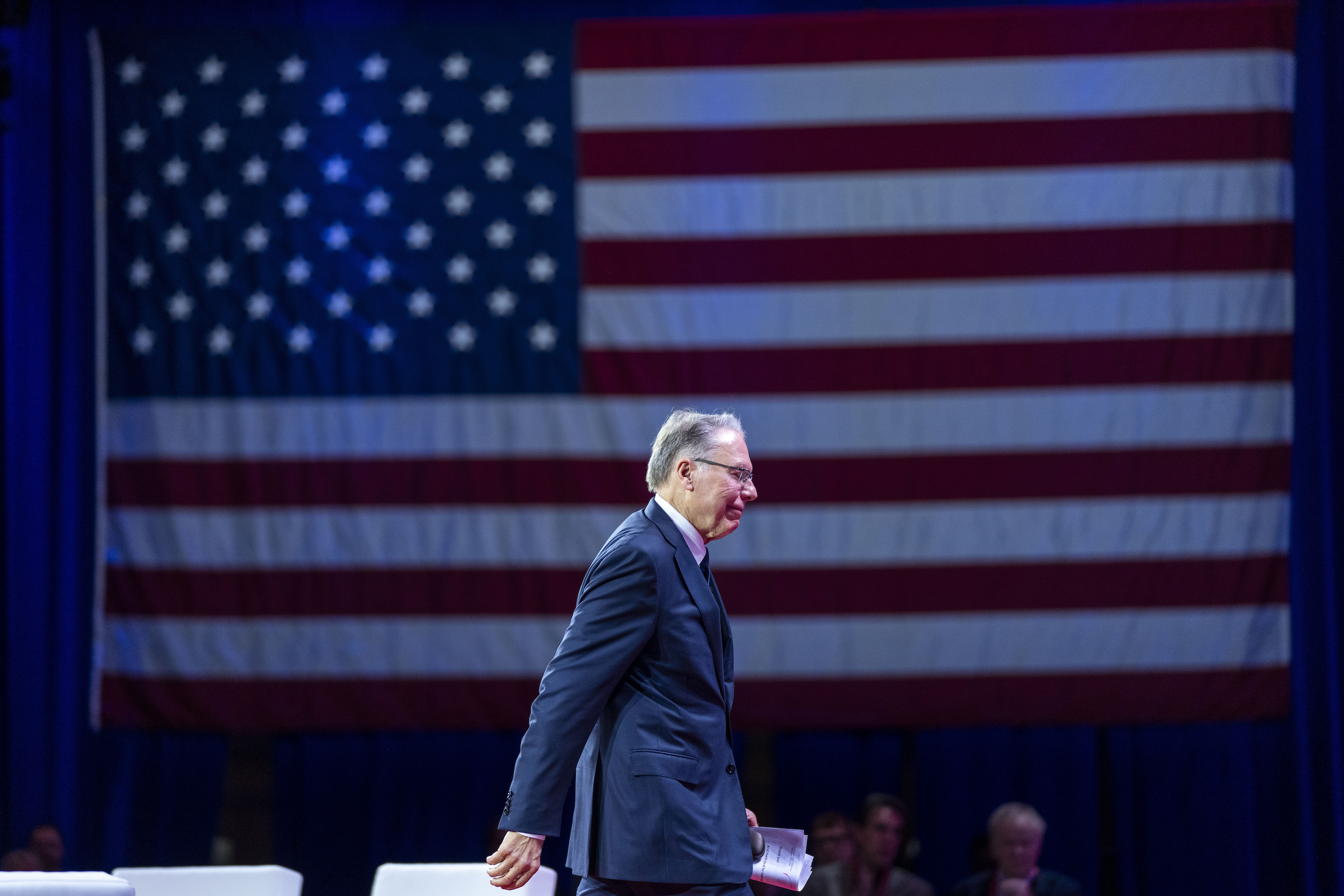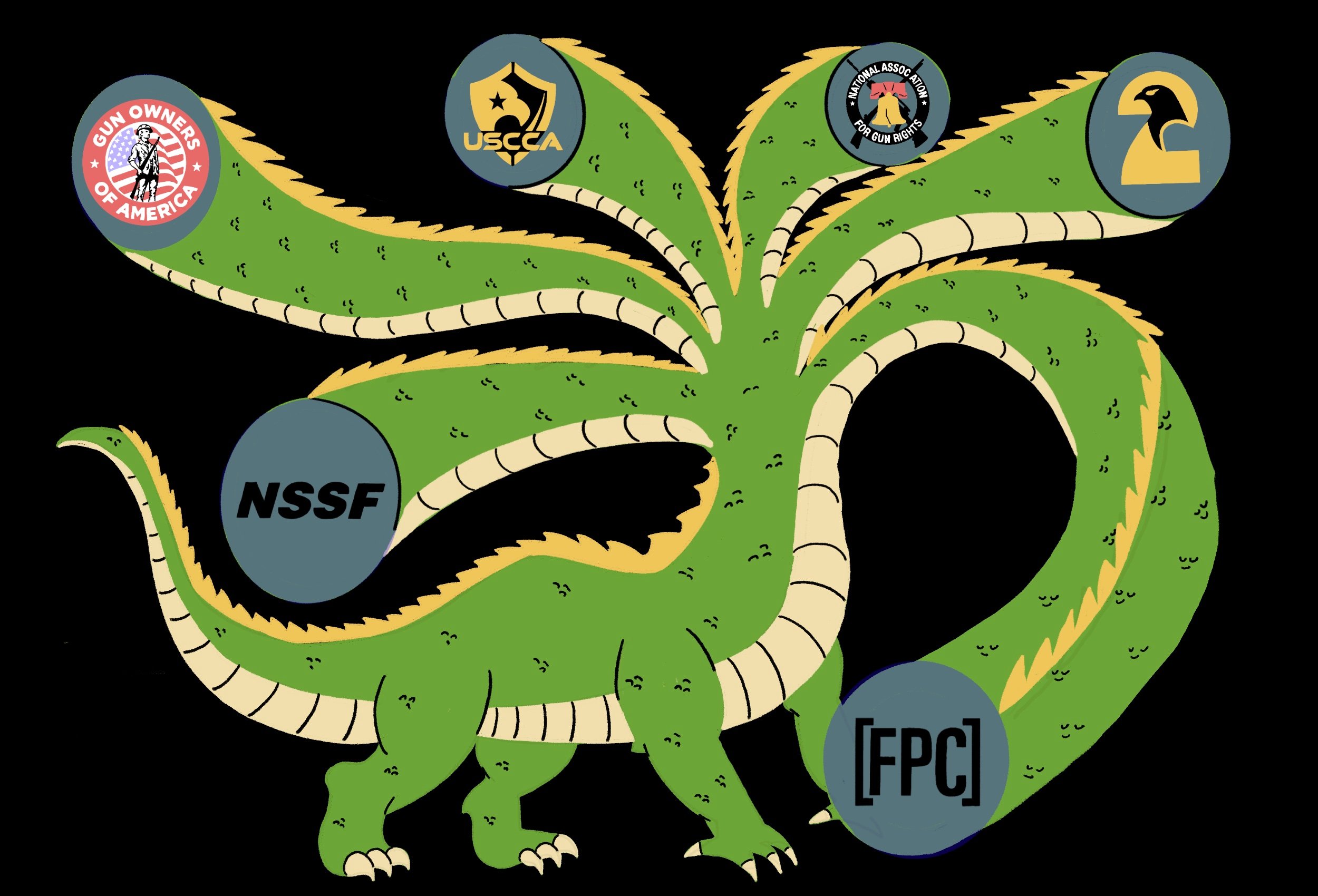Update: On Jan. 5, Wayne LaPierre resigned his post from the NRA effective Jan. 31.
A Manhattan jury is expected to begin hearing New York Attorney General Letitia James’s case against the National Rifle Association on January 8, three and a half years after she filed a lawsuit against the group and alleged that top officials had used the nonprofit as a “personal piggy bank.”
The trial, which could lead to additional oversight of the NRA, is likely to have two phases. In the first, which is expected to last six weeks, the jury will determine whether individual defendants and the NRA are guilty. If so, the jury will also rule on how much money the defendants must repay to the organization. Should the jury find liability on claims for which James demands relief beyond monetary restitution, State Supreme Court Judge Joel M. Cohen will schedule a second phase of the trial to weigh remedies.
James initially sought to dissolve the organization, however Cohen ruled that out in early 2022.
In addition to LaPierre, the defendants include NRA general counsel John Frazer, former treasurer and CFO Wilson Phillips, former general operations director Joshua Powell, and the NRA itself. James alleges that the defendants spent NRA money on luxury trips, cushy insider contracts, and private jet travel. The attorney general’s case centers in part on misuse of NRA assets that the Trace first revealed in 2019.
Since that time, the organization has weakened considerably, spending far less on political advocacy and core programs. Members have turned away and the group has operated in the red. Yet the NRA remains by far the largest, most visible, gun rights organization in the country. Should the jury side with James and remove LaPierre, it would signal the end of an era for the group. Potentially, however, an invigorated NRA could emerge and direct its resources fully to its central mission.
Claims against the NRA
The key allegation against the NRA is its failure to handle charitable assets responsibly. By not properly overseeing individual defendants who enriched themselves on NRA member money, the attorney general alleges, the organization enabled widespread violation of internal controls and the waste and diversion of funds. If the jury finds the NRA guilty, Cohen will decide whether to appoint an outside monitor and can order other governance measures as he sees fit.
Sean Delany, an attorney who formerly oversaw the charities bureau of the New York Attorney General’s Office and served as president of the National Association of State Charities Officials, said Cohen may be reluctant to put a monitor in place because NRA funds would be used to pay for the position. “There could be a middle ground,” Delany said, “Cohen could say to the NRA, ‘No monitor, but I want regular reports to me or the AG with the following information.’”
The organization is also alleged to have “harassed and retaliated” against whistleblowers. Specifically, board members on the group’s Audit Committee are said to have ignored detailed whistleblower concerns regarding the misuse of funds. James wants those who violated whistleblower protections gone. Cohen will decide on removal if the jury finds the NRA guilty.
The group is also alleged to have made false regulatory filings, which, with a finding of guilt, could lead to the NRA being barred from raising funds in New York State.
Claims against LaPierre
LaPierre is alleged to have violated his fiduciary duty to the NRA. As James asserts in her complaint, LaPierre, who has been CEO since 1991, used his position, “to obtain illegal compensation and benefits, to convert NRA funds to his benefit, and to dominate, control, and direct the NRA to provide private benefit to himself, his family members, and other insiders.”
Delany said LaPierre’s misuse of NRA assets “shocks the conscience,” and that James will prioritize his removal. “Anything less, I think, would not be considered a victory,” he said. If the jury finds cause to sack LaPierre, Cohen would later rule on the terms of his ouster and whether it’s permanent.
The other defendants also face breach of fiduciary duty claims, and the attorney general seeks monetary restitution from Phillips and Powell and removal of Frazer, the NRA’s general counsel.
LaPierre and the other defendants are also accused of failing to properly administer NRA assets. In addition, LaPierre, Phillips, and Powell are alleged to have benefitted from an array of insider financial transactions that took place without required board approvals. These include money paid to NRA board members and millions of dollars in “consulting agreements” that LaPierre engineered for departing executives. “In some cases, former employees were paid far in excess of reasonable compensation and did not actually provide the NRA with corresponding consulting services,” the suit states. On the failure to properly administer assets claims, James wants the defendants to pay restitution and to be barred from serving on state nonprofits.
Restitution could run to many millions of dollars. In proposed instructions to the jury, the Attorney General’s Office suggests that it will recommend restitution amounts during closing remarks, but that the jury is free to depart from its guidance. Generally, judges may modify damage awards.
Final moves
On January 1, the NRA, pointing to a revised list of exhibits to be used at trial that the Attorney General’s Office had produced two days before, asked Cohen to delay the proceeding or limit how the state can use newly identified material. “These surprise substitutes, modifications, and entirely-new documents are highly prejudicial to the NRA’s trial preparation efforts,” attorneys for the organization argued in a filing. Cohen, who has been dismissive of other NRA requests that could create delays, will have to consider the matter as jury selection is underway.
The NRA maintains that a “course correction” that began in 2017 and continued after James brought her suit has bolstered its financial controls. At a hearing on December 14, the state argued that the purported fixes were largely irrelevant, but Cohen sided with the NRA and signaled that because of the broad allegations against it, the jury will hear about corrective steps that the group has taken. “My overarching lean at the moment is to allow the NRA a considerable amount of leeway to introduce evidence of remedial measures,” Cohen said.
Given that he intends to let the jury hear about recent corrective steps, Cohen said it was fair to allow the state to introduce a nearly 30-year-old report that sounded alarms over several of the same financial relationships James highlights in her suit. “While the sheer dollar amount involved is staggering, as is the manifest disregard, the contempt, for board financial policy,” the report states, “the lax business practices that resulted from our lack of written agreements with several major vendors is perhaps the most disturbing, and, we believe, financially damaging aspect of these poor management practices.”
Cohen noted that estimates of the time needed to question witnesses that the parties offered to him are far greater than the time allotted for trial, and he encouraged them to “get busy trimming” and to be focused and concise during the proceeding. “This jury is going to be asked to devote six weeks of their lives to this trial,” Cohen said. “We owe it to them to keep to the schedule.”

